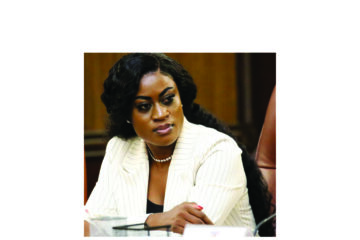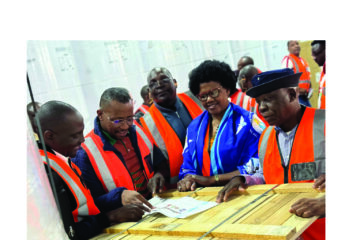Hertta-Maria Amutenja
NamPower is monitoring a potential energy crisis following Zambia’s decision to recall 100 megawatts (MW) of electricity from the export market, which has raised concerns about Namibia’s energy supply.
Cornelius Mweetwa, Zambia’s minister for information and media, announced this week that Zesco, the country’s state-owned power utility, will recall at least 100 MW of electricity to meet local utilisation needs.
Mweetwa emphasised that Zambia is currently contractually bound to supply the export market but is actively pursuing a smooth exit plan from these agreements.
Namibia currently imports 120 MW of electricity from Zambia following a reduction in exports of 60 MW from Zesco.
Through two separate bilateral Power Purchase Agreements (PPAs), NamPower has contracted 180 MW, reducing its total capacity to 120 MW.
NamPower’s managing director, Kahenge Haulofu, said they are closely monitoring the situation despite no formal communication from Zambia yet.
“There have not been such communications from Zambia as of yet. They would have contacted us if there was anything like that, but if they were to recall, it could affect Namibia. However, we are monitoring the situation,” said Haulofu.
The potential withdrawal of 100 MW from Zambia raises concerns about Namibia’s ability to meet electricity demand, which could result in load shedding and increased tariffs.
The Popular Democratic Movement (PDM) has expressed concern over Zambia’s directive, highlighting Namibia’s heavy reliance on imported electricity.
PDM secretary for information and publicity, Hidipo Hamata, underscored the urgency for Namibia to diversify its energy sources to mitigate potential shortages. He suggested exploring increased imports from neighbouring countries like South Africa and Angola, despite their own energy challenges.
“The decision by Zambia, while understandable from their perspective of addressing local power shortages, necessitates immediate and robust responses from our government to mitigate the impending crisis. It is imperative that Namibia urgently explore alternative sources of electricity to compensate for the anticipated shortfall. One potential avenue is to negotiate additional power imports from South Africa, albeit recognising that South Africa itself is grappling with power supply issues,” said Hamata.
Hamata called for diplomatic engagement with Zambia to negotiate a phased reduction in power exports and recommended convening an emergency energy summit involving stakeholders to safeguard Namibia’s energy supply.
“While this situation underscores the interdependencies within the Southern African Power Pool (SAPP), it also highlights the need for regional cooperation and resilience in energy policies. Namibia must advocate for stronger regional frameworks that can buffer member countries from unilateral decisions that have far-reaching impacts,” he said.




